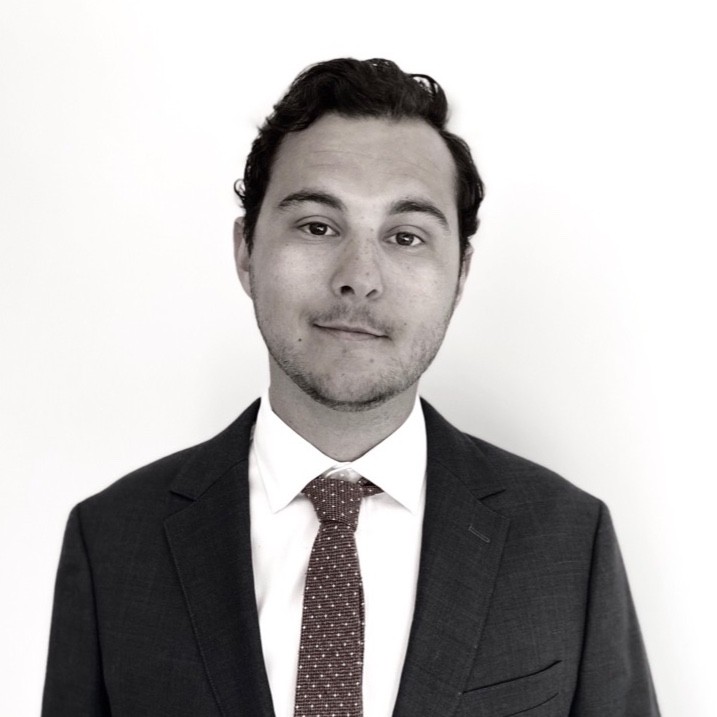
Caleb Norris is Co-Chair of IPLAC’s Diversity Equity and Inclusion (“DEI”) Committee and the CBA’s Civil Rights Legislative Liaison for young lawyers. By day, Caleb is an intellectual property attorney focusing on prosecution and trademark enforcement at IP-Horgan LTD. Before IP-Horgan, Caleb worked with a civil rights firm working on police misconduct cases, and public interest and civil rights remains a big interest of Caleb’s.
Caleb’s pursuit of intellectual property law came as a merger of his longstanding interests in both fine art law and public interest. During his first two summers in law school, Caleb worked in federal Indian law, working with the Tribal Law and Policy Institute in Los Angeles and then the Native American Rights Fund in Boulder. While at the Native American Rights Fund, Caleb had the opportunity to work on indigenous intellectual property proposals for the World Intellectual Property Office, where he saw the intersection of Intellectual Property law and Civil Rights law, and how preserving underrepresented groups’ intellectual property could really help bolster those communities.
Caleb describes the DEI Committee as having two main focuses: “The first is how to promote DEI in the legal field. For example, IPLAC’s recent efforts – led by board member Atanu Das – resulted in the successful launch of a new directive with five local Chicago law firms where hours spent doing certain approved DEI measures will count towards billable hour requirements.”
Caleb describes the second focus as being over how IP and civil rights law play together. The Committee is hoping to have a CLE course set up for next semester that will discus cultural appropriation. Until then, the DEI Committee often ends its bi-weekly meetings discussing a topic related to the intersection of DEI and IP, such as stories of indigenous creators who have had their works effectively stolen, often to great commercial success, without any economic benefit going to the people from whom the creative work originated. For example, retailer Urban Outfitters recently settled with the Navajo Nation over use of their patterns and designs. “This has led to Urban Outfitters not only paying the settlement, but now trying to partner with the Navajo for future collaborations.” Similarly, retailer Madhappy sold sweatshirt designs derivative of the Navajo seal. “The ideas central to these cases even extend into the issue of Native American mascots and the use of caricatures of cultures as symbols.”
This issue is one that is particularly close to Caleb, as he wrote his law school thesis on it – specifically the gaps in fashion law, and the effect on underrepresented communities. “In the United States, a specific clothing design generally cannot receive copyright protection. In rare instances, there are only limited options for getting protections in the form of a trademark or design patent. So due to how copyright law in the U.S. functions, Native American communities do not have a great path to protect their classic heritage designs. And the limited paths that exist come with massive barriers to entry like legal fees.”
For anyone who has not had the chance to attend a DEI event but is considering, Caleb shares this message:
“Diversity, equity and inclusion is something that had the world at its heels last summer and it was something that everyone was hyper focused on and hyper involved in. I think despite the best efforts those who are most committed it, it can fall by the wayside as the world starts to move back to normal and other topics start to take back space in the news. The goal of our committee is to keep diversity, equity, and inclusion – in both the legal field as a whole and IP – a fluid conversation. One that does not necessarily feel like we are forcing it, preaching about it, or espousing ideas for how we think people should treat it. In our events, this means productive, safe, constructive conversations about diversity, equity and inclusion within the boundaries of whatever our event is. This means we welcome all people, no matter what their opinions are, what their background is, what their thoughts are on the subjects, to come and join us and try to take part in a comfortable environment where you do not need to put your usual shields up. This way it becomes less of an imposition from someone telling you what you should care about.”
If you are interested in reading more about the DEI Committee, see our recent feature on Atanu Das here, and keep an eye out for the DEI Committee’s regular book and film discussions.
